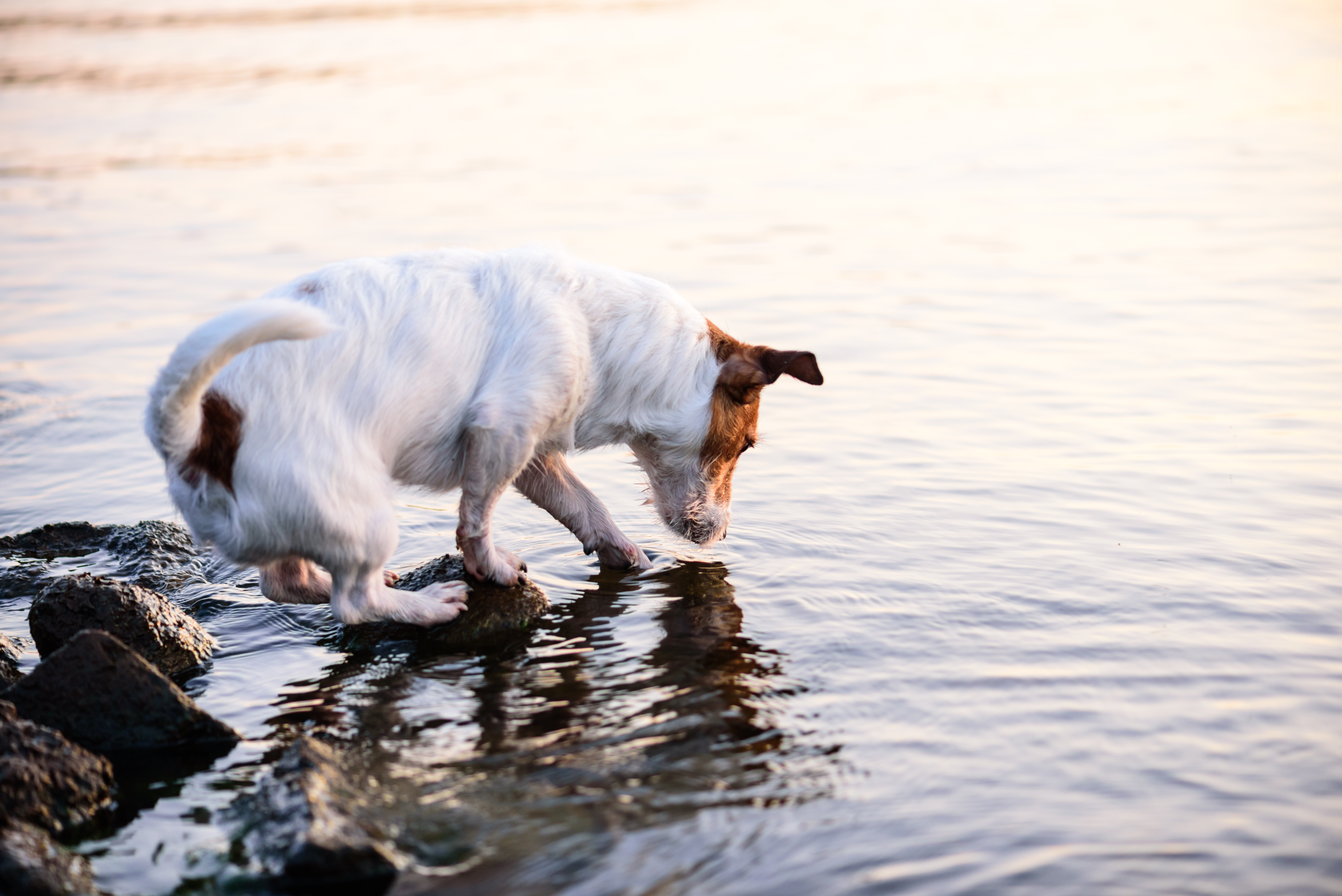Never heard of Salmon Poisoning Disease in dogs? Now’s the time to get the scoop so that you can protect your dog from this serious – and potentially deadly – illness.
What is Salmon Poisoning Disease?
Salmon Poisoning Disease (SPD) is a potentially fatal gastrointestinal or systemic infection that occurs when dogs eat raw salmon or other types of fish containing a ricketssial microorganism called Neorickettsia helminthoeca.
Which fish carry SPD?
Any ocean-going fish that swims upstream to breed can cause SPD, including salmon (salmonid fish) and steelhead trout.
Are cats susceptible to SPD?
No. Cats do not get Salmon Poisoning Disease.
Is SPD limited to a certain geographical region?
Yes. SPD occurs in fish living in the coastal regions of northern California, Oregon, and Washington in the United States and southern British Columbia in Canada. Dogs in Brazil have been reported to contract a similar disease.
How does infection with SPD occur?
First, the fish is infected with a fluke called Nanophyetus salmincola, which in itself is relatively harmless. However, the fluke, in turn, carries a dangerous microorganism called Neorickettsia helminthoeca. When a dog consumes infected raw fish, this dangerous microorganism is passed along, serving as the cause of the disease.
What are the symptoms of SPD?
Symptoms include vomiting, lack of appetite, diarrhea, dehydration, fever, weakness and swollen lymph nodes.
How is SPD diagnosed?
Suspicion of the disease is based on the dog’s clinical signs and history and diagnosed via a fecal sample or lymph node needle biopsy.
Is SPD treatable?
Early SPD is treatable, however, left untreated 90% of dogs die within 6 – 10 days of showing clinical signs. Clinical signs typically appear about one week after the dog consumes the infected fish.
How is SPD treated?
Treatment includes administration of certain antibiotics as well as supportive care of IV fluids and maintaining body temperature.
How can I prevent my dog from getting SPD?
The only certain way to protect against SPD is to never allow a dog to eat raw fish.
References
Hall, EJ. (2013). Chapter 57 – Small Intestine, in Canine and Feline Gastroenterology, pp. 651 – 728, https://doi.org/10.1016/B978-1-4160-3661-6.00057-2.
Hoggan, Sarah, Salmon Poisoning Disease, Washington State University College of Veterinary Medicine, https://www.vetmed.wsu.edu/outreach/Pet-Health-Topics/categories/diseases/salmon-poisoning.
Solano-Gallego, L, Parnell, NK & Lappin, M. (2008). Chapter 115 – Rickettsial Infections, in “Handbook of Small Animal Practice” (5th ed), pp. 1121 – 1131, https://doi.org/10.1016/B978-1-4160-3949-5.50119-9.
Originally posted 2018-04-10 13:21:20.







